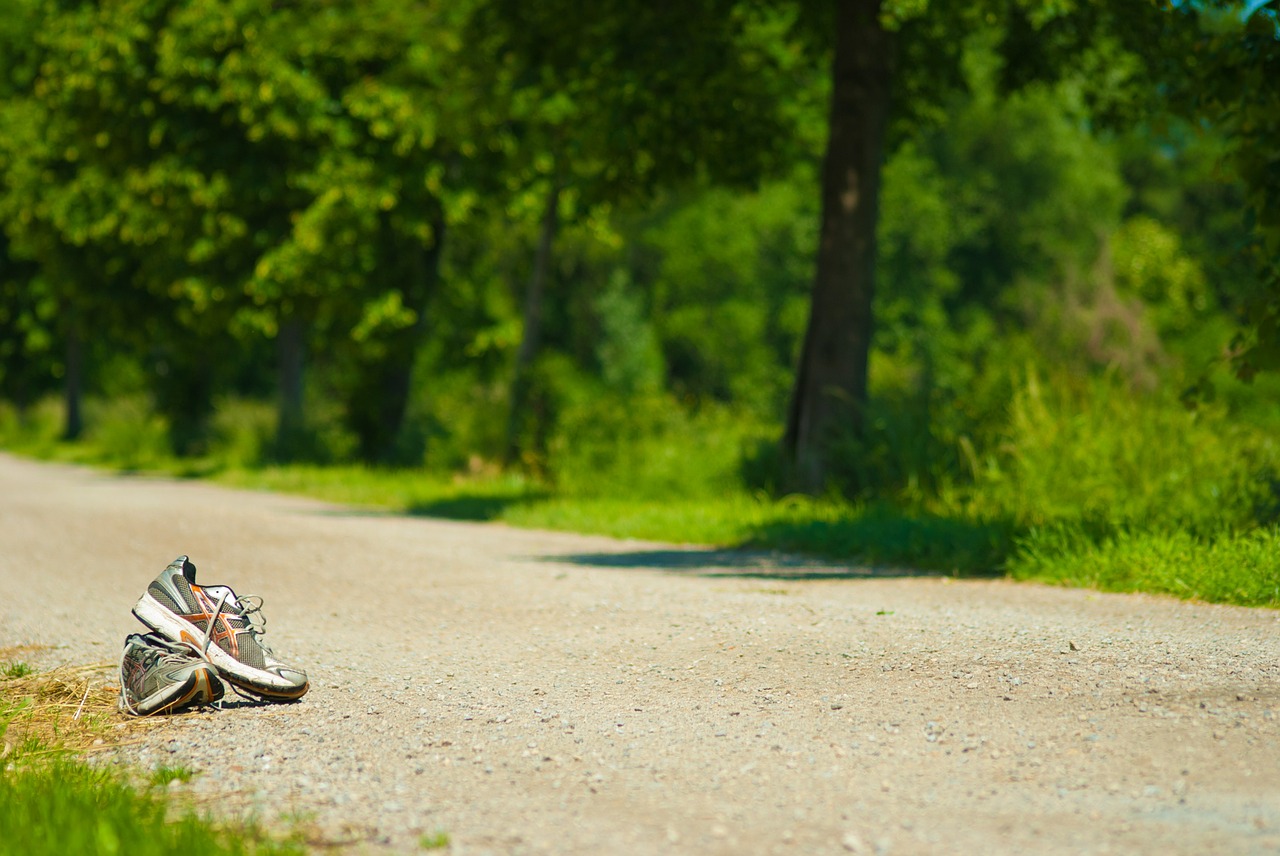The Reader’s High
Christina Lee
 I am a trail runner. But when I tell you that, you will get the wrong idea about me. You will picture someone with gleaming calf muscles and a wardrobe stuffed with Lulu Lemon gear.
I am a trail runner. But when I tell you that, you will get the wrong idea about me. You will picture someone with gleaming calf muscles and a wardrobe stuffed with Lulu Lemon gear.
That’s not me. I am the type of runner people roll down their windows to cheer on because I look like I might keel over. I am short-legged and hippy and I take frequent walk-breaks.
And no, I’m not downplaying my athletic prowess for modesty’s sake. Want proof? A man once stopped me on the trail just to remark, “Wow, I’ve never seen anyone running this far up. How do you do it? Is the trick to just go super slow like that the whole way?”
Yup. It is.
Despite all the huffing and puffing and the occasional backhanded compliment, I can’t quit trail running. I’m hopelessly in love with the runner’s high.
It’s usually somewhere around mile three. My body throws an endorphin party and every organ’s invited. It’s usually around the same time I’ve reached the curve in the trail that shows the whole valley spread out before me. And it’s always enough to keep me coming back for more, to keep me hitting the trail even when I’m achy and slow.
I’ve never joined a running group or trained in any official sense. One day I just decided to see how far I could go without stopping. The process felt natural to me, and for inspiration, I found myself drawing on an unlikely (and very nerdy) source—reading. Specifically, reading the classics.
I’ve always had a fascination with books that look daunting. They feel like a steep hill waiting to be climbed. They require the same sort of grit, and they provide a similar reward. At the moment, I’m halfway through Middlemarch by George Elliot. And as much as I’d like to tell you I’ve been riveted by every line, that would be a lie. Some moments have felt like a very slow trudge.
But then, last week, I came upon the most beautiful passage. I’ll try to describe it, but I think part of its impact may have come from the way it burst forth after pages of rather dreary narration.
Dorothea, who has wound up in a rough marriage partially because of her overly pious, prideful nature, tells her husband’s cousin Will that she is now learning to live “by desiring what is perfectly good, even when we don’t quite know what it is and cannot do what we would, we are part of the divine power against evil—widening the skirts of light and making the struggle with darkness narrower.”
Will understands, and listens, and Dorothea feels heard and valued for the first time. Will is in love with Dorothea, but she doesn’t know it. There’s just a charge and power to the whole scene. Eliot finishes with the charmingly apt description:
“They were looking at each other like two fond children who were talking confidentially of birds”
When I came upon this scene, something similar to a trail runner’s high flowed over me. Sandra Scofield, in The Scene Book, describes scenes like this as focal points. They are “where the essence lies, the point at which everything changes.”
And isn’t life like that, too? Think back over your week—there are probably whole hours that got swallowed up in the ordinary. Hopefully, though, you can also conjure up in memory at least one swift rush of joy.
As a teacher, February and March can be dreary months. Days can tend to drag on, weighted down by the mundane. When I find beauty on the trail and in literature, when I experience these micro-rushes—a beautiful run, a perfect scene—I’m reminded to seek this out in my daily life, too.